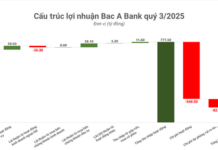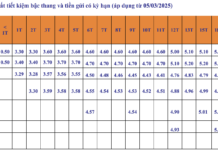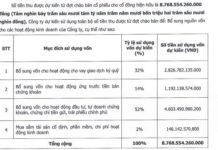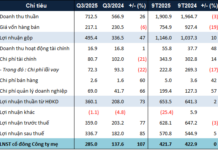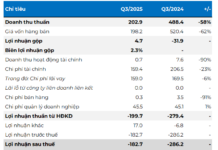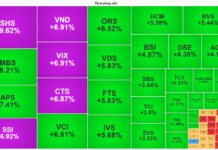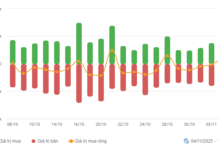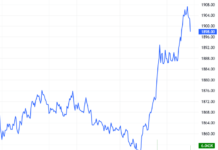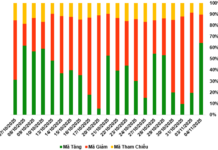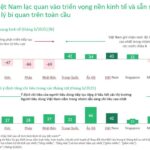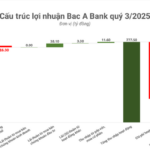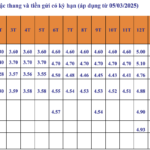As Vietnam strides toward its ambitious goal of achieving high-income status by 2045, technology emerges as a pivotal force in accelerating capital access and enhancing cross-border connectivity.
The nation’s digital finance ecosystem is poised to become a powerhouse for economic growth, job creation, and expanded financial inclusion.
At the Digital Finance Inclusion Conference 2025, held on October 29 in Ho Chi Minh City and organized by the International Finance Corporation (IFC) in partnership with the Vietnam Banking Association (VNBA), with support from the Australian Government and the Swiss State Secretariat for Economic Affairs (SECO), regulators, financial experts, and innovators from across the Asia-Pacific region convened to explore how technology can drive financial innovation and inclusion.
Vietnam’s Digital Finance Acceleration
According to the World Bank Group’s Global Findex 2025, over 70% of Vietnamese adults now hold a financial account, with 62% actively using digital payments. With internet penetration reaching 80% of the population, the potential for expanding inclusive financial services is vast.
Vietnam’s digital finance ecosystem is rapidly expanding, bolstered by the National Financial Inclusion Strategy and a new fintech sandbox decree that enables banks and fintech startups to test innovative solutions in a controlled environment.
“As Vietnam nears the launch of an international financial center later this year, a modern, trustworthy, and globally connected financial ecosystem will be indispensable,” stated Mr. Pham Thanh Ha, Deputy Governor of the State Bank of Vietnam (SBV). “Digital finance is at the core of this vision, enabling secure transactions, broadening capital access, and enhancing cross-border connectivity. By fostering responsible innovation and aligning with global standards, Vietnam can emerge as a competitive regional hub where digital finance drives sustainable growth and financial inclusion.”
Industry experts highlighted that advanced tools such as AI-powered credit scoring, alternative data models, open banking, and digital ID integration will be critical in improving financing for small and medium-sized enterprises (SMEs), enhancing risk management, and opening new markets. A robust digital finance ecosystem, they noted, will not only fuel SME expansion and attract foreign investment but also boost productivity in manufacturing and exports through greater efficiency and reduced transaction costs.
“Digital finance is more than a driver of innovation—it’s a key enabler of broader economic transformation,” remarked Mr. Thomas Jacobs, IFC Country Manager for Vietnam, Cambodia, and Laos. “With the right blend of technology, sound regulation, and targeted investment, Vietnam can cultivate a vibrant fintech sector that enhances competitiveness, supports entrepreneurship, creates quality jobs, and ensures financial access for all.”
Vietnam’s leadership in the Mekong region is evident through its advancements in open banking pilots, fintech sandboxing, and national digital ID integration, laying the groundwork for a secure and inclusive financial future. The country joins regional pioneers like Singapore, Australia, and the Philippines in championing open finance and responsible data use to build connected, resilient digital economies.
Financial Inclusion and Well-being
During the panel discussion, Mr. Chu Khanh Lan, Deputy Director General of the Forecasting and Statistics – Monetary and Financial Stabilization Department under the SBV, reaffirmed the government’s commitment to inclusive development, ensuring that “no one is left behind” in all socio-economic policies.
According to Mr. Lan, even before the launch of the National Financial Inclusion Strategy, the banking sector had initiated several programs to expand access to financial services. After five years of implementation, the strategy has achieved significant progress in three key areas.
First, Vietnam has developed a comprehensive legal framework for financial and banking products and services, including key laws such as the Law on Credit Institutions, the Law on Insurance Business, the Law on Anti-Money Laundering, and the recently introduced regulatory sandbox mechanism for the financial sector.
Second, the financial network has significantly expanded, bringing banking services closer to the population through commercial banks, people’s credit funds, and microfinance institutions.
Third, the SBV has focused on supporting vulnerable groups—including women, low-income earners, and residents in rural or remote areas—by promoting digital technologies in financial inclusion.
After five years, Vietnam has achieved notable results: non-cash payments have grown by over 62% annually, while credit for agriculture and rural development accounts for approximately 20% of total outstanding loans.
“These outcomes are encouraging,” Mr. Lan emphasized. “However, challenges remain in extending financial services to remote areas. Today’s discussions on digital technology for financial inclusion will help Vietnam address this issue in the coming years.”
Additionally, Mr. Shehryar Ali Shah, Head of the IFC’s Ho Chi Minh City Office, shared with VnEconomy / Vietnam Economic Times that while financial inclusion means having access to a bank account, financial health is the ultimate goal. “If your bank balance is zero at the end of the month, having an account doesn’t help much,” he said. “The question is: what are banks doing for these customers? Are account holders able to borrow, save, or afford better education, healthcare, or leisure?”

Drawing from his experience in Singapore, he noted that the income gap remains a challenge even in highly developed economies. In Vietnam, the primary obstacle to financial health lies more on the supply side of financial services, while demand is strong and the digital foundation is already in place. “From AI to data analytics, Vietnamese talent is exceptional,” he said. “Whether in coastal towns or coffee and tea plantations, everyone has a smartphone. The infrastructure is ready.”
Mr. Shah also praised initiatives from the Vietnamese Government, such as digital identification (VNeID) and the fintech sandbox, calling them vital steps toward building a modern digital financial ecosystem.
“The next challenge is helping people effectively use their accounts to save, borrow, and invest, particularly in creative sectors like digital content, film, and fashion,” he continued. “This will significantly boost entrepreneurship among the younger population, including content creators and artists, and strengthen job creation in the creative industries as they continue to grow and diversify. That’s where the IFC aims to make an impact. As Vietnam strives to become a high-income economy by 2045, improving the financial health of its people must be a top priority.”
The International Finance Corporation (IFC), a member of the World Bank Group, is the largest global development institution focused on the private sector in emerging markets. In fiscal year 2025, it committed a record $71.7 billion to private companies and financial institutions in developing countries, leveraging private capital to promote sustainable growth and create opportunities for all.
Notable Real Estate M&A Deals in Q3 2025
In Q3/2025, the real estate M&A market witnessed several notable transactions, including Vinaconex’s sale of the Cát Bà Amatina project, Hodeco’s withdrawal from the Đại Dương tourism complex, and DIC Corp’s transfer of the Lam Hạ Center Point project. These deals highlight the dynamic nature of Vietnam’s property sector during this period.
Prime Minister’s Mandate for a $500 Billion GDP Impact Model Launching in November
Introducing the first-of-its-kind model in Vietnam, a groundbreaking innovation that sets a new standard in the industry.






